Back in 1996 a small group of people in Co Roscommon set up a committee and applied for funding from the New Opportunities for Women (NOW) programme. Their aim was to establish a social care co-operative that would provide services to cover childcare, house management, elder care and gardening.
Initially, the co-operative trained 30 people – many of those were farmer’s wives and they could manage their hours around family needs. Today, the co-operative cares for 600 clients and employs over 300 people both full and part time. The business is run as a co-operative on a not-for-profit basis and they say it’s the only one of its type in the country.
Veronica Barrett joined RHS Home Care Co-operative in 1999 and she set about spreading the word. “Over the years we began to concentrate on elder care in the home and to a much lesser extent on house cleaning. Our priority is the client. Since the beginning we have been about quality care and not financial gain and that remains our ethos today.”

Veronica Barrett, director of services at RHS Home Care, Roscommon. \ Hany Marzouk
Any profit made by the co-operative is invested into training staff so they can provide the best service possible. The co-operative has a voluntary board of 10 people chaired by Ballygar farmer and businessman Pat Gilmore.
Veronica says many of the carers are part time and combine the work with farming and other employment. With 300 full- and part-time staff it is a welcome economic boost to the region.
“We aim to give good value for money and our services are closely supervised. There’s a big emphasis on the social side with carers encouraged to chat, whether it be about sport, what’s on television or the weather. We are also very strong on confidentially.” Most clients are referred by the HSE and the co-operative also offer services to private clients.
“Need has driven the numbers,” says Veronica. “We give people the option to remain living in their own homes. Homes which, in many cases, they have lived in all their lives. People can do this if they get just a little support. And the savings are colossal. You are talking about €900-€1,200 a week in a nursing home versus €200 a week home care so that people can remain in their homes.”
Future plans
Patrick Towey took up the position of general manager of RHS Home Care Co-operative last March. While he is new to the job he is not new to the work as for the previous four years he was training manager of the co-operative.
The co-operative has approximately 600 clients in counties Roscommon, Mayo and Galway and almost 300 carers employed. Patrick wants to sustain the current level of quality care the co-operative supplies its clients.
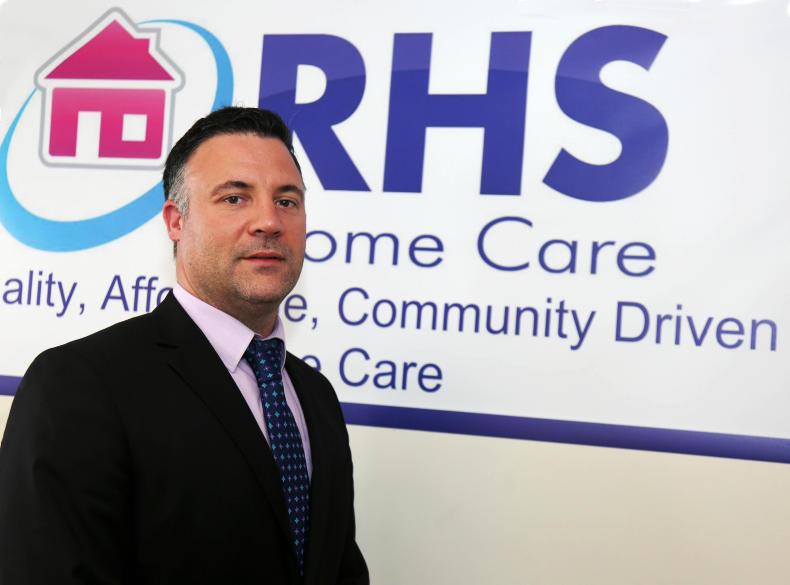
Patrick Towey, general manager at RHS Home Care, Roscommon. \ Hany Marzouk
The HSE refers about 90% of their clients and each of them is allocated a homecare package. The number of hours range between two and 14, however, the client would need to be in an extreme situation to get the maximum hours.
Patrick hopes to open offices in Galway and Mayo and branch out to other counties. However, a shortage of carers could slow this down. “Our carers are our eyes and ears. They are at the coalface. In many cases they are with our clients more often than their families can be. They can spot any set back in a client’s health and well-being. They really are superb.”
‘My little home in the west'
Vera Ayers, née O’Connor, was at the door to welcome us into her bright and cheerful home at Cluain Mhuire, located outside the village of Four Mile House in Co Roscommon. These are a group of eight purpose-built homes that allow elderly people live independently in their own community.
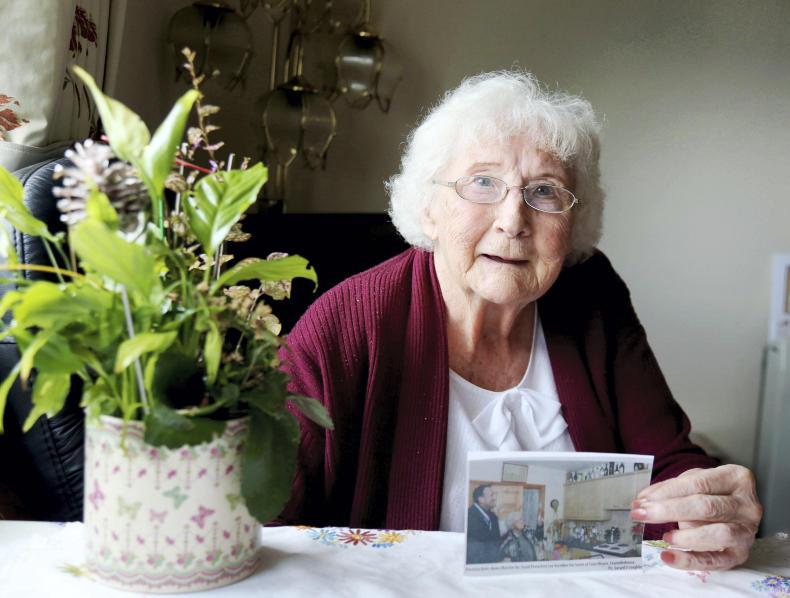
Vera Ayres at her home in Roscommon with a photo taken for her and Taoiseach Leo Varadkar. \ Hany Marzouk
They are located right beside a shop, community centre, a day care centre and a church. As well as all that they are serviced by a community bus that travels to Roscommon town twice a week.
Now aged 94, Vera went to school across the fields in Carnalasson National School. She left school at 14 and spent 70 years in Liverpool. “I never thought I’d be entitled to my little home in the west but because I’d gone to school here that qualified me. Fr Ray Brown spent nine years getting the houses built and they are just wonderful. It’s a gorgeous community and we all help each other,” she says.
“My carer comes early and organises me for the day. I get my own breakfast and she is back in the afternoon to tidy up, do laundry and make me a cup of tea. I also have support from DARRANE – a disability support group. It means I can stay in my little home in the west. The carers are just wonderful. I’d be in a home without them. Every day I thank God and His blessed mother for directing them to me.”
‘My carers – they are my life’
Ninety-year-old Luke Owens is a former cattle and sheep farmer and he remembers saving hay by hand. “It was fierce work making all the cocks of hay and getting them into the shed, dry.”
Luke describes his carers Leonie and Ursula as his saviours.
“They are very good to me. They are my life.” He gets an hour of care in the morning and another in the afternoon with an extra hour on a Sunday.
“It’s not enough at all,” says Christina Carty ground supervisor. “Luke has a solid fuel range and that’s a high fire risk. He is also subject to a high risk of slips and falls. I called in one day and found him on the floor. We’ve helped improve his living conditions and he has family support but he still spends most of his time alone and rarely gets out.”
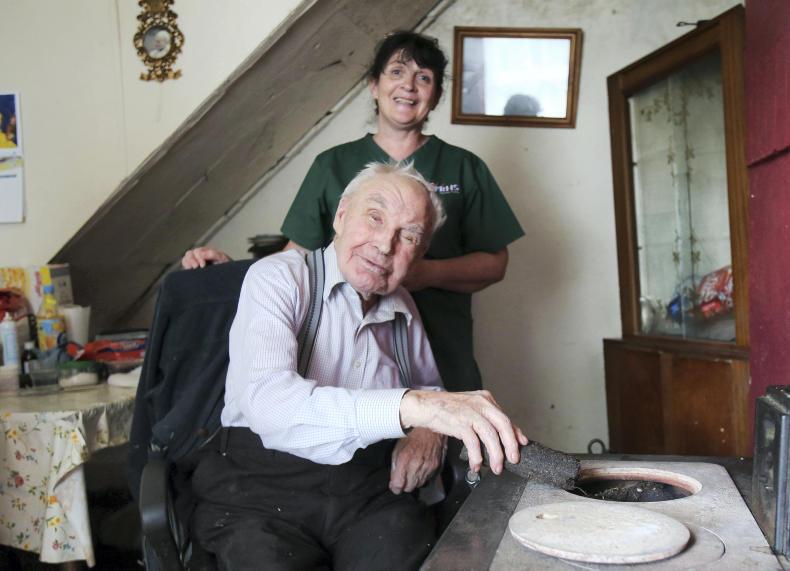
Ninety-year-old Luke Owens at his home outside Roscommon. \ Hany Marzouk
Luke’s carer Ursula Cauneen puts on a dinner in the morning and it’s ready at lunch time. Luke strains the potatoes, not an easy job when you are 90 and at risk of scalds.
The maximum number of care hours available from the HSE to a person is 14 but according to carers and staff at RHS Home Care Co-operative very few people get those hours. In their experience 12 hours maximum is more likely.
‘I’m here a long time now’
Patrick and John McDermott are aged 89 and 84 respectively. Patrick was a sheep and drystock farmer and remembers walking cattle to Roscommon Fair and from Strokestown to the train at Dromod. Younger brother John worked in the UK for many years. They and their seven siblings are all still going strong.
The brothers are approved for two hours of care a day and their carer Leonie Gibbons gets laundry done, lights a fire, organises a dinner, does housework and shopping and ensures their medicines are being taken.
The brothers want to live independently, but that’s getting harder as services in rural areas shut down. They have to travel to the nearest town to see a doctor and collect pensions. A taxi to Strokestown or Roscommon could cost €40. They say it’s great to have good neighbours who help them out.

Brothers Patrick and John McDermott at their home outside Roscommon. \ Hany Marzouk
John says the carers are a God send. “They are very sociable and bring us all the news. I’m here in this house a long time now,” says Pat, “and I really want to stay here,” he adds wistfully.
RHS Home Care Co-operative employs 284 carers and have about 300 staff in total. Many of their carers have reared their families and want to supplement their income. About 60% work part-time on between 15-20 hours a week. If you are in receipt of a careers welfare payment the hours are limited to 15 a week says ground supervisor Christina Carty. Major Award FETAC level 5 is the mandatory standard of training, although older carers with strong experience need not have this qualification. It takes about two years to complete the eight modules. Male and female carers are employed.
The biggest problem they have is recruiting carers. “HSE carers get €14/hour while we as a not-for-profit voluntary co-op can only pay €12/hour.”
All carers are Garda vetted, however, it can take anything from four to eight weeks for that process to complete. “It’s no use telling the person who needs a carer now that they have to wait. Instead of reinventing the wheel, why not allow carers have a card that could be renewed annually,” asks Christine.
Doing something of real benefit
Ursula Cauneen was a trained beautician who also cared for her parents. After they passed away she completed the training courses and has been working as a carer for two years.
“There’s a lot of falseness in the beauty business whereas with caring you really are doing something that is of real benefit to people.” She’d advise people to do the training courses. “It’s just great and I get great satisfaction doing the work. You would want to like it though.”
Work around your family
Leonie Gibbons cares for people in the Strokestown, Tulsk and Four Mile House area. Having lived in the UK she moved back to Roscommon in 2005. “I’d worked with the elderly in the UK so I knew what the job was like. I did the training – Major Award FETAC Level 5 – and started working with Roscommon Home Services in 2012. I’d say to anyone don’t be afraid of it. Get your courses done. Its great work and you can organise your hours around your children.”
Contact RHS Home Care Co-operative at 090-6625988 or email info@rhshomecare.ie. If interested in becoming a carer send your CV to jobs@rhshomecare.ie
Back in 1996 a small group of people in Co Roscommon set up a committee and applied for funding from the New Opportunities for Women (NOW) programme. Their aim was to establish a social care co-operative that would provide services to cover childcare, house management, elder care and gardening.
Initially, the co-operative trained 30 people – many of those were farmer’s wives and they could manage their hours around family needs. Today, the co-operative cares for 600 clients and employs over 300 people both full and part time. The business is run as a co-operative on a not-for-profit basis and they say it’s the only one of its type in the country.
Veronica Barrett joined RHS Home Care Co-operative in 1999 and she set about spreading the word. “Over the years we began to concentrate on elder care in the home and to a much lesser extent on house cleaning. Our priority is the client. Since the beginning we have been about quality care and not financial gain and that remains our ethos today.”

Veronica Barrett, director of services at RHS Home Care, Roscommon. \ Hany Marzouk
Any profit made by the co-operative is invested into training staff so they can provide the best service possible. The co-operative has a voluntary board of 10 people chaired by Ballygar farmer and businessman Pat Gilmore.
Veronica says many of the carers are part time and combine the work with farming and other employment. With 300 full- and part-time staff it is a welcome economic boost to the region.
“We aim to give good value for money and our services are closely supervised. There’s a big emphasis on the social side with carers encouraged to chat, whether it be about sport, what’s on television or the weather. We are also very strong on confidentially.” Most clients are referred by the HSE and the co-operative also offer services to private clients.
“Need has driven the numbers,” says Veronica. “We give people the option to remain living in their own homes. Homes which, in many cases, they have lived in all their lives. People can do this if they get just a little support. And the savings are colossal. You are talking about €900-€1,200 a week in a nursing home versus €200 a week home care so that people can remain in their homes.”
Future plans
Patrick Towey took up the position of general manager of RHS Home Care Co-operative last March. While he is new to the job he is not new to the work as for the previous four years he was training manager of the co-operative.
The co-operative has approximately 600 clients in counties Roscommon, Mayo and Galway and almost 300 carers employed. Patrick wants to sustain the current level of quality care the co-operative supplies its clients.

Patrick Towey, general manager at RHS Home Care, Roscommon. \ Hany Marzouk
The HSE refers about 90% of their clients and each of them is allocated a homecare package. The number of hours range between two and 14, however, the client would need to be in an extreme situation to get the maximum hours.
Patrick hopes to open offices in Galway and Mayo and branch out to other counties. However, a shortage of carers could slow this down. “Our carers are our eyes and ears. They are at the coalface. In many cases they are with our clients more often than their families can be. They can spot any set back in a client’s health and well-being. They really are superb.”
‘My little home in the west'
Vera Ayers, née O’Connor, was at the door to welcome us into her bright and cheerful home at Cluain Mhuire, located outside the village of Four Mile House in Co Roscommon. These are a group of eight purpose-built homes that allow elderly people live independently in their own community.

Vera Ayres at her home in Roscommon with a photo taken for her and Taoiseach Leo Varadkar. \ Hany Marzouk
They are located right beside a shop, community centre, a day care centre and a church. As well as all that they are serviced by a community bus that travels to Roscommon town twice a week.
Now aged 94, Vera went to school across the fields in Carnalasson National School. She left school at 14 and spent 70 years in Liverpool. “I never thought I’d be entitled to my little home in the west but because I’d gone to school here that qualified me. Fr Ray Brown spent nine years getting the houses built and they are just wonderful. It’s a gorgeous community and we all help each other,” she says.
“My carer comes early and organises me for the day. I get my own breakfast and she is back in the afternoon to tidy up, do laundry and make me a cup of tea. I also have support from DARRANE – a disability support group. It means I can stay in my little home in the west. The carers are just wonderful. I’d be in a home without them. Every day I thank God and His blessed mother for directing them to me.”
‘My carers – they are my life’
Ninety-year-old Luke Owens is a former cattle and sheep farmer and he remembers saving hay by hand. “It was fierce work making all the cocks of hay and getting them into the shed, dry.”
Luke describes his carers Leonie and Ursula as his saviours.
“They are very good to me. They are my life.” He gets an hour of care in the morning and another in the afternoon with an extra hour on a Sunday.
“It’s not enough at all,” says Christina Carty ground supervisor. “Luke has a solid fuel range and that’s a high fire risk. He is also subject to a high risk of slips and falls. I called in one day and found him on the floor. We’ve helped improve his living conditions and he has family support but he still spends most of his time alone and rarely gets out.”

Ninety-year-old Luke Owens at his home outside Roscommon. \ Hany Marzouk
Luke’s carer Ursula Cauneen puts on a dinner in the morning and it’s ready at lunch time. Luke strains the potatoes, not an easy job when you are 90 and at risk of scalds.
The maximum number of care hours available from the HSE to a person is 14 but according to carers and staff at RHS Home Care Co-operative very few people get those hours. In their experience 12 hours maximum is more likely.
‘I’m here a long time now’
Patrick and John McDermott are aged 89 and 84 respectively. Patrick was a sheep and drystock farmer and remembers walking cattle to Roscommon Fair and from Strokestown to the train at Dromod. Younger brother John worked in the UK for many years. They and their seven siblings are all still going strong.
The brothers are approved for two hours of care a day and their carer Leonie Gibbons gets laundry done, lights a fire, organises a dinner, does housework and shopping and ensures their medicines are being taken.
The brothers want to live independently, but that’s getting harder as services in rural areas shut down. They have to travel to the nearest town to see a doctor and collect pensions. A taxi to Strokestown or Roscommon could cost €40. They say it’s great to have good neighbours who help them out.

Brothers Patrick and John McDermott at their home outside Roscommon. \ Hany Marzouk
John says the carers are a God send. “They are very sociable and bring us all the news. I’m here in this house a long time now,” says Pat, “and I really want to stay here,” he adds wistfully.
RHS Home Care Co-operative employs 284 carers and have about 300 staff in total. Many of their carers have reared their families and want to supplement their income. About 60% work part-time on between 15-20 hours a week. If you are in receipt of a careers welfare payment the hours are limited to 15 a week says ground supervisor Christina Carty. Major Award FETAC level 5 is the mandatory standard of training, although older carers with strong experience need not have this qualification. It takes about two years to complete the eight modules. Male and female carers are employed.
The biggest problem they have is recruiting carers. “HSE carers get €14/hour while we as a not-for-profit voluntary co-op can only pay €12/hour.”
All carers are Garda vetted, however, it can take anything from four to eight weeks for that process to complete. “It’s no use telling the person who needs a carer now that they have to wait. Instead of reinventing the wheel, why not allow carers have a card that could be renewed annually,” asks Christine.
Doing something of real benefit
Ursula Cauneen was a trained beautician who also cared for her parents. After they passed away she completed the training courses and has been working as a carer for two years.
“There’s a lot of falseness in the beauty business whereas with caring you really are doing something that is of real benefit to people.” She’d advise people to do the training courses. “It’s just great and I get great satisfaction doing the work. You would want to like it though.”
Work around your family
Leonie Gibbons cares for people in the Strokestown, Tulsk and Four Mile House area. Having lived in the UK she moved back to Roscommon in 2005. “I’d worked with the elderly in the UK so I knew what the job was like. I did the training – Major Award FETAC Level 5 – and started working with Roscommon Home Services in 2012. I’d say to anyone don’t be afraid of it. Get your courses done. Its great work and you can organise your hours around your children.”
Contact RHS Home Care Co-operative at 090-6625988 or email info@rhshomecare.ie. If interested in becoming a carer send your CV to jobs@rhshomecare.ie









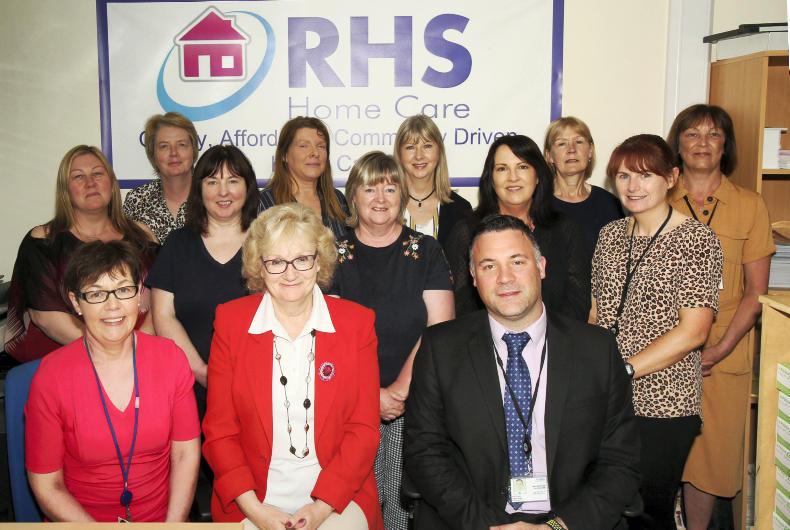
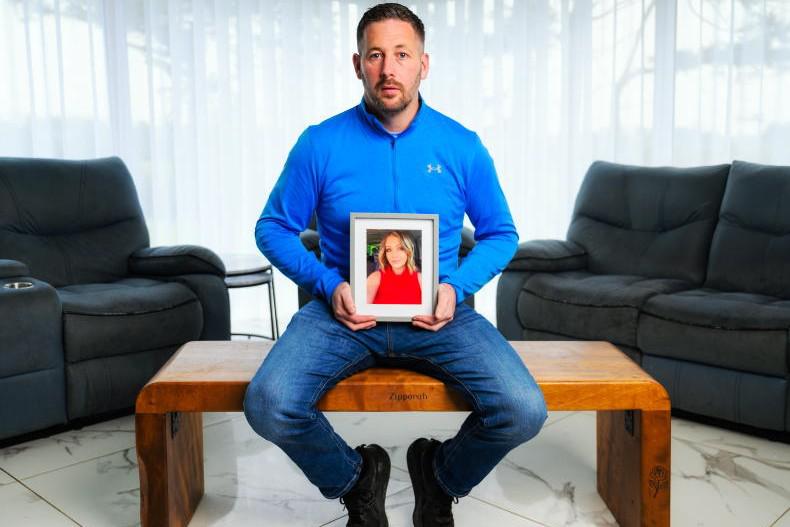
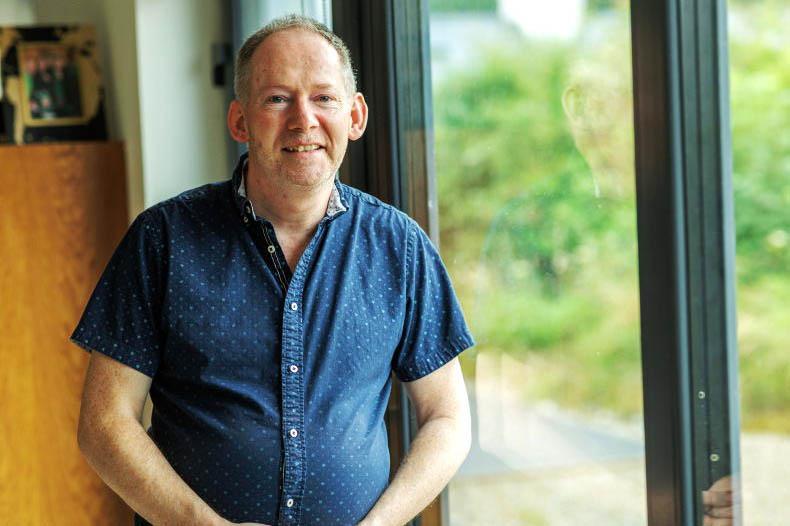
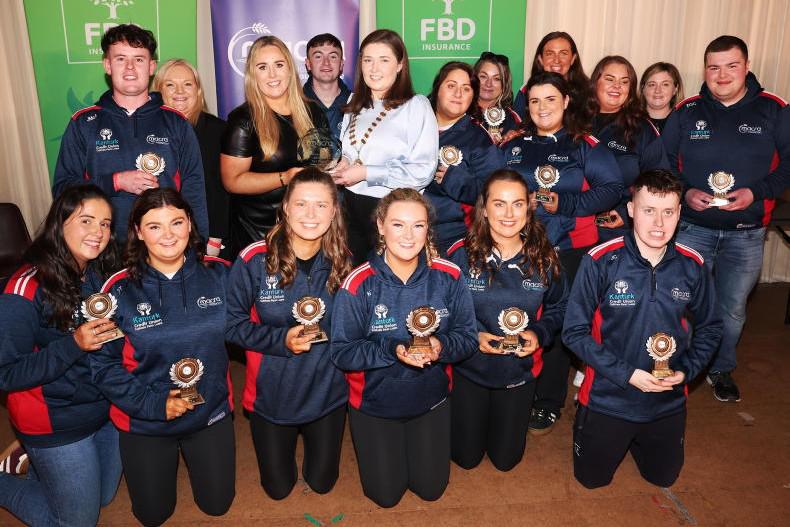
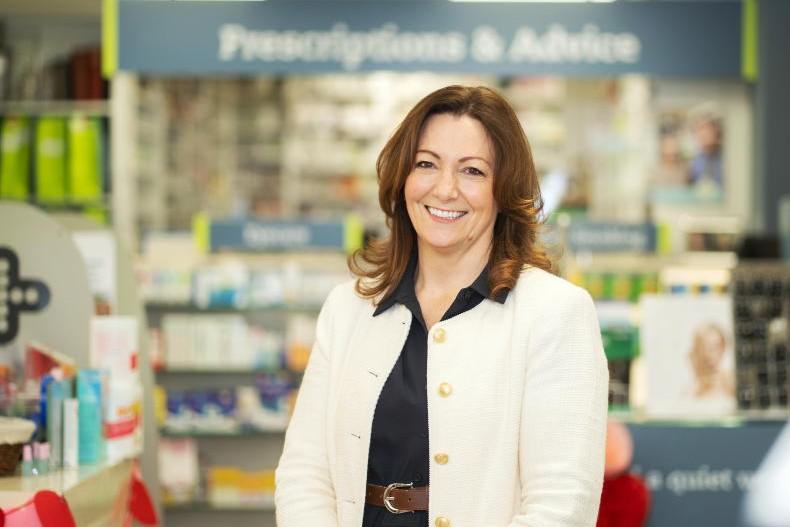
SHARING OPTIONS